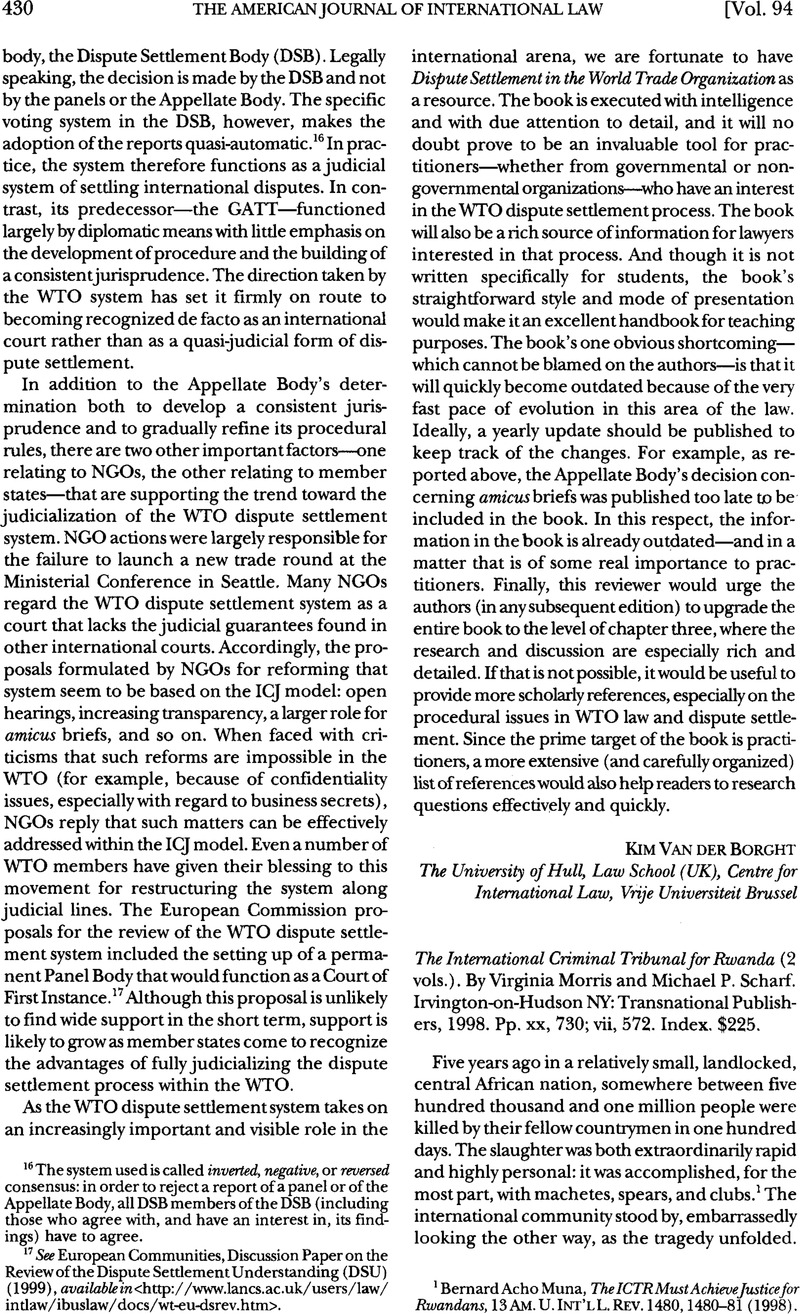No CrossRef data available.
Published online by Cambridge University Press: 27 February 2017

1 Bernard Acho Muna, The ICTR Must Achieve Justice for Rwandans, 13 Am.U.Int’l L. Rev. 1480, 1480–81 (1998).
2 Diane F. Orentlicher, Foreword to War Crimes Tribunals: The Record and the Prospects, 13 Am. U. Int’l L. Rev., No. 6, at i, ii (1998).
3 International Criminal Tribunal for Rwanda Fact Sheet No. 1 (November 1999), available in <>.
4 Id.
5 Virginia Morris & Michael P. Scharf, An Insider’s Guide to the International Criminal Tribunal for the Former Yugoslavia (2 vols. 1995).
6 The authors did not refer to either Protocol II or Common Article 3 as sources of law that could be used in interpreting Article 3 (violations of the laws and customs of war) of the ICTY. Id. at 1:69–72.
7 International Covenant on Civil and Political Rights, Dec. 16, 1966, Art. 14(1)(e), 999 UNTS 171, reprinted in 6 ILM 368 (1967) (“to examine, or have examined, the witnesses against him and to obtain the attendance and examination of witnesses on his behalf under the same conditions as witnesses against him”) (emphasis added).
8 The French penal code, for example, imposes penalties for failure to bring a person in danger whatever assistance can be provided, either by one’s own action or by obtaining help, without risk to oneself or to third parties. C. Pen. Art. 63 (Fr.).